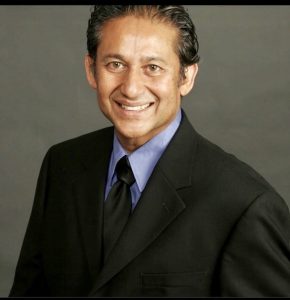The Role of the Physician as an Advocate for Health Care
 Years of rigorous medical training and extensive knowledge in health care make physicians uniquely qualified to serve as health care advocates. As an advocate, that is what I firmly believe.
Years of rigorous medical training and extensive knowledge in health care make physicians uniquely qualified to serve as health care advocates. As an advocate, that is what I firmly believe.
My name is Inam Rahman, MD, a Diplomate of the Board of Certification in Internal Medicine (BCIM), a Member Board of the American Board of Physician Specialties® (ABPS). I’m also a practicing internist and emergency medicine physician in Honolulu, HI.
Already, physicians play a pivotal advocacy role due to our direct contact with patients and organization administrators. Additionally, by way of our daily practice, we possess a solid understanding of today’s most complex health issues. For advocates of any stripe, knowledge matters, and physicians are knowledgeable professionals.
Our communication skills and accessibility to health care stakeholders put us in an ideal position to influence administrators, community leaders, and government legislators to ensure that patients receive the best treatment available. For me, advocacy has meant running for political office in Hawaii, with improving healthcare as a primary objective. Currently, I am a healthcare advisor to Representative John Mizuno who serves as Chair of Hawaii’s House Health Committee and Co-Chair on a subcommittee of the Council of State Governments’ national Healthy States Task Force.
I have long maintained that physician advocacy is vital to health care. For instance, when we take our cars to mechanics, we expect professional opinions and expert service, so why should patients expect anything less from medical practitioners? Providing the best treatment possible for patients is the first step that we as physicians can take along our path to health care advocacy.
I believe that every physician should understand the important health care issues of the day, how those issues are being addressed, and whether the proposed solution makes a difference. Physicians should ask: Are there better options? As advocates, we can propose alternatives and voice our concerns through conversations with colleagues and legislators. For example, consider how the high costs of prescription drugs, including generic drugs, negatively affect our patients. We need to understand why costs continue to rise. Is it because of drug manufacturers, wholesalers, Insurance companies, or pharmacies? Are benefit managers the overlooked cause? Or, is it all the above?
I find advocacy work deeply satisfying and continually rewarding. By advocating for my patients, I have increased my knowledge and enjoyed the gratification that comes from making a difference not only for my patients but the public in general. And when a policy that I have advanced leads to healthier patient outcomes, it renews my dedication to my medical practice. Good health, I believe, is the true wealth of the nation because a healthier population makes for a far richer and more productive society.






